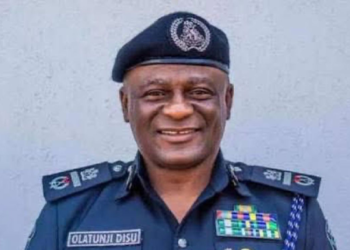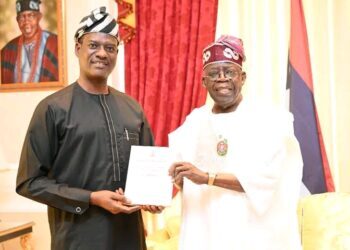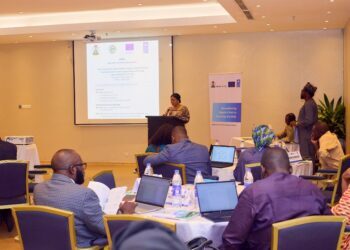The Director General of the Department of State Services (DSS), Oluwatosin Ajayi, has called for communities to be allowed some level of armament to defend themselves against attacks.
Speaking at the annual maiden lecture of the Alumni Association of the National Institute for Security Studies (AANISS) in Abuja, Mr Ajayi emphasized the importance of grassroots involvement in tackling insecurity.
Citing examples from Bauchi State, he referenced the ‘Siawas’ and ‘Azare’ people, who successfully repelled invaders due to their deep understanding of their environment.
“They did not only repel them, they seized their weapons. Since then, you hardly hear about Tafawa Balewa again,” he said.
He argued that relying solely on security agencies such as the army, police, and DSS to protect every Nigerian was unrealistic. Instead, he urged communities to take a more active role in their own security.
“You do not expect the Nigerian army, police, DSS to protect every Nigerian or every government. It is not going to work,” he stated.
Mr Ajayi stressed the need for a multi-layered security approach, allowing national forces to focus on organised crime and larger threats.
“It is impossible for us to deploy to every community in the country. No security agency has the resources to do it,” he said. “What we have to start experimenting with is how we can make the community the first line of defence.”
He pointed to Nigeria’s communal culture as a strength that could be harnessed in the fight against insecurity.
“We do festivals together. We do ceremonies together. So why can’t we fight some miscreants together? The community should say, ‘You cannot come here.'”
In his lecture, the Director General of the Nigerian Army Resource Centre, Major General Garba Wahab (Rtd), underscored the importance of monitoring and evaluating government security policies.
He lamented that Nigeria has “paid lip service to security education” and accused elites of weaponising poverty and insecurity for personal gain.
Major General Wahab also called for greater government engagement with border communities, arguing that their neglect had worsened the country’s security situation.
Mr Ajayi’s remarks come amid ongoing security challenges in Nigeria, where attacks by armed groups, bandits, and insurgents have led to widespread displacement and loss of lives.
His call for community armament is likely to spark debate over the balance between self-defence and the risks of increased arms proliferation.
“We have to get communities to rise and defend themselves. And the time to start is now,” he concluded.











